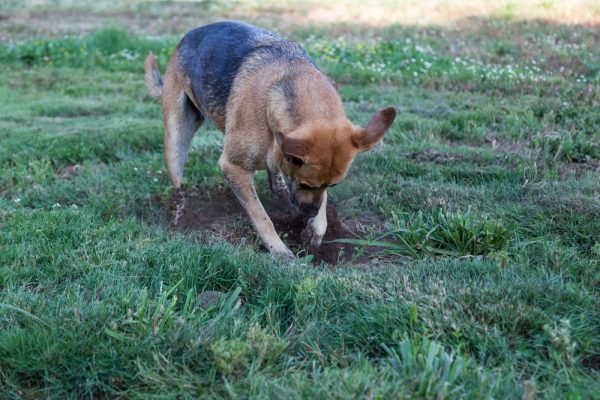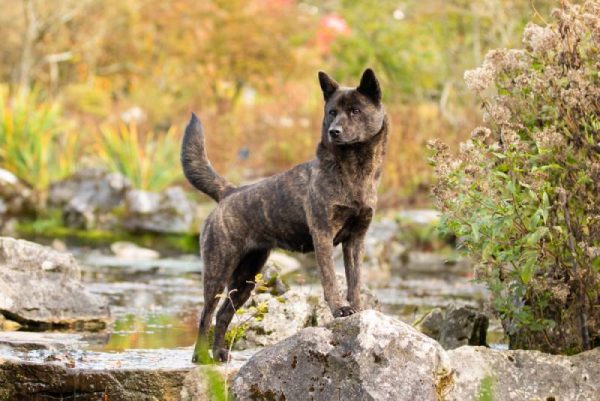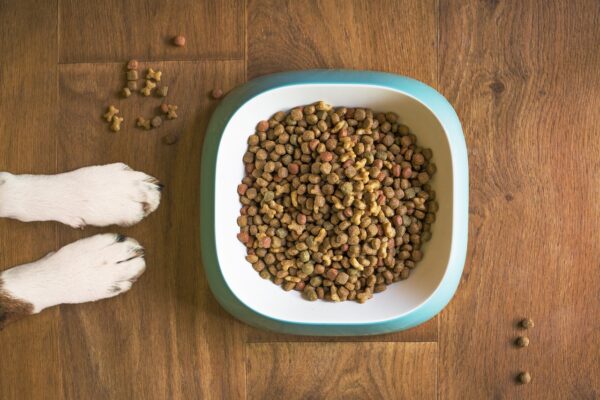In this article
View 4 More +A banana may be your go-to snack when you’re looking for something healthy, satisfying, and convenient. In fact, the fruit may be such a staple in your diet that you’re wondering about sharing it with your canine companion.
The good news is that dogs can safely eat bananas, but there are a few stipulations to adhere to ensure that they’re a healthy option for your pup. Let’s look at the benefits of sharing bananas with your dog and how to ensure that you are doing so in the healthiest and safest manner possible.

Why Can Dogs Eat Bananas?

Bananas aren’t considered toxic to dogs and may even provide health benefits when fed in moderation. However, they aren’t something that your dog needs if they are eating high-quality dog food, and there is such a thing as overdoing it. Still, if you’re looking for an occasional treat to use for training or just a sporadic snack for your dog, bananas may be just what you’re looking for.
Benefits of Feeding Bananas to Dogs
Bananas are a nutrient-packed fruit with a (not too) sweet taste. Their soft texture may also be the reason that humans and dogs alike gravitate toward them. Regarding nutrition, bananas can provide vitamin C to boost immunity, B vitamins for metabolism, magnesium for blood sugar regulation, fiber for healthy digestion, and famously, potassium for muscle and nerve function.
All these nutrients can give your dog’s diet a boost, but they aren’t necessary if your pup is already eating a high-quality dog food. Any extra supplementation that they may need due to a health condition or otherwise should be prescribed by your veterinarian.

How to Feed Bananas to Dogs

While bananas do provide a bit of a nutrient punch due to their vitamins, minerals, and fiber, they still contain a large amount of sugar. While these are natural sugars, they can still negatively affect your dog’s digestive system.
Too much sugar from fruit or otherwise can lead to a bout of diarrhea, vomiting, and stomach pain in dogs. Most of the time, these signs won’t last long and likely won’t require anything other than careful monitoring, but if the signs last longer than a couple of days or become severe, contact your vet. On a similar note, don’t give your dogs the banana peel. It can be hard to digest and may even cause an intestinal blockage as it tries to work its way through.
You can treat your dog to the occasional banana the same way that you would enjoy it. Remove the peel, then cut it up and offer the chunks by themselves, or mash it up and put it on top of their food. You can even incorporate bananas into homemade treats that are sure to please. Just don’t give your dog any chunks that are big enough to cause them to choke, and don’t give them any banana products with added ingredients, including things like banana bread, cakes, or cookies.
You may notice that many commercial treats and dog foods include bananas in their ingredients list as a safe option for additional fiber, vitamins, or minerals.
How Much Banana Can You Give to Your Dog?
This depends on your specific pup. Small pups should get smaller amounts than large pups, and dogs with certain health conditions, such as diabetes, shouldn’t get any at all. Always speak to your vet before offering your dog a banana or any other human food to make sure it’s safe for them to eat and to determine the appropriate amounts.

What Other Fruits Can Dogs Eat?

Besides bananas, there are other safe and healthy fruit options that you can add to your dog’s food bowl. Due to their high sugar content, fruits should be kept as occasional treats and only given in moderation. As with any type of human food, be sure to consult your vet before giving one to your dog. Remove any skin, rind, peel, pit(s), or seeds. Wash the fruit thoroughly and cut into bite-sized chunks.
- Apples
- Raspberries
- Strawberries
- Blueberries
- Melon
- Cranberries
- Peaches
- Pears
- Pumpkin
- Cucumber
- Important note: This applies to fresh or frozen fruit only. Don’t give dried fruit to your dog as it contains a higher concentration of sugar, and don’t serve canned fruits due to their sugary syrup.
- Grapes
- Unripe tomatoes
- Avocado

Conclusion
Our canine companions are such a big part of our family that we often want to share our favorite foods with them. Fortunately, you can give a banana to your dog; just be sure to only do so as an occasional snack in small amounts. Don’t give bananas or any other fruits to your dog without first talking to your veterinarian, and monitor them for signs of digestive upset if they happen to eat a large piece.
Featured Image Credit: Paulo Vilela, Shutterstock





















